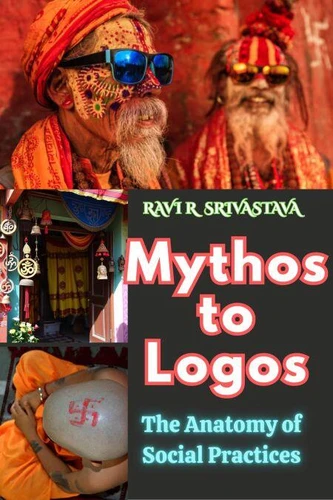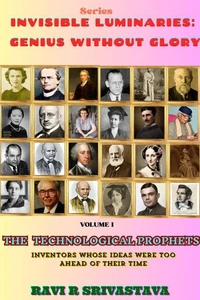Mythos to Logos : The Anatomy of Social Practices
Par :Formats :
Disponible dans votre compte client Decitre ou Furet du Nord dès validation de votre commande. Le format ePub est :
- Compatible avec une lecture sur My Vivlio (smartphone, tablette, ordinateur)
- Compatible avec une lecture sur liseuses Vivlio
- Pour les liseuses autres que Vivlio, vous devez utiliser le logiciel Adobe Digital Edition. Non compatible avec la lecture sur les liseuses Kindle, Remarkable et Sony
 , qui est-ce ?
, qui est-ce ?Notre partenaire de plateforme de lecture numérique où vous retrouverez l'ensemble de vos ebooks gratuitement
Pour en savoir plus sur nos ebooks, consultez notre aide en ligne ici
- FormatePub
- ISBN8231579563
- EAN9798231579563
- Date de parution04/06/2025
- Protection num.pas de protection
- Infos supplémentairesepub
- ÉditeurWalzone Press
Résumé
In a world increasingly guided by science and reason, why do superstitions, rituals, and blind faith still hold such powerful sway over our lives? This compelling book embarks on a deep exploration of the roots, persistence, and consequences of irrational beliefs in modern society-particularly in India, where tradition and modernity coexist in complex harmony. Through a rich blend of historical analysis, literary insight, psychological research, and real-life stories, the author uncovers how myths evolve into mandates, who benefits from sustaining outdated beliefs, and why even the educated are not immune to their pull.
From ancient divination practices and caste-driven customs to contemporary urban superstitions and digital-age rituals, the narrative reveals the intricate web of cultural, economic, and psychological forces that shape belief systems. The book also highlights inspiring voices of dissent-saints, poets, philosophers, and modern rationalists-who have challenged dogma and championed inquiry. Ultimately, it makes a passionate case for cultivating a culture of questioning, critical thinking, and scientific temper-not as a rejection of faith, but as a path toward deeper understanding and authentic spirituality.
This is more than a critique of superstition-it's an invitation to explore the human need for meaning, the dangers of unquestioned tradition, and the transformative power of doubt. For anyone interested in the intersection of belief, identity, and progress, this book offers both illumination and inspiration.
From ancient divination practices and caste-driven customs to contemporary urban superstitions and digital-age rituals, the narrative reveals the intricate web of cultural, economic, and psychological forces that shape belief systems. The book also highlights inspiring voices of dissent-saints, poets, philosophers, and modern rationalists-who have challenged dogma and championed inquiry. Ultimately, it makes a passionate case for cultivating a culture of questioning, critical thinking, and scientific temper-not as a rejection of faith, but as a path toward deeper understanding and authentic spirituality.
This is more than a critique of superstition-it's an invitation to explore the human need for meaning, the dangers of unquestioned tradition, and the transformative power of doubt. For anyone interested in the intersection of belief, identity, and progress, this book offers both illumination and inspiration.
In a world increasingly guided by science and reason, why do superstitions, rituals, and blind faith still hold such powerful sway over our lives? This compelling book embarks on a deep exploration of the roots, persistence, and consequences of irrational beliefs in modern society-particularly in India, where tradition and modernity coexist in complex harmony. Through a rich blend of historical analysis, literary insight, psychological research, and real-life stories, the author uncovers how myths evolve into mandates, who benefits from sustaining outdated beliefs, and why even the educated are not immune to their pull.
From ancient divination practices and caste-driven customs to contemporary urban superstitions and digital-age rituals, the narrative reveals the intricate web of cultural, economic, and psychological forces that shape belief systems. The book also highlights inspiring voices of dissent-saints, poets, philosophers, and modern rationalists-who have challenged dogma and championed inquiry. Ultimately, it makes a passionate case for cultivating a culture of questioning, critical thinking, and scientific temper-not as a rejection of faith, but as a path toward deeper understanding and authentic spirituality.
This is more than a critique of superstition-it's an invitation to explore the human need for meaning, the dangers of unquestioned tradition, and the transformative power of doubt. For anyone interested in the intersection of belief, identity, and progress, this book offers both illumination and inspiration.
From ancient divination practices and caste-driven customs to contemporary urban superstitions and digital-age rituals, the narrative reveals the intricate web of cultural, economic, and psychological forces that shape belief systems. The book also highlights inspiring voices of dissent-saints, poets, philosophers, and modern rationalists-who have challenged dogma and championed inquiry. Ultimately, it makes a passionate case for cultivating a culture of questioning, critical thinking, and scientific temper-not as a rejection of faith, but as a path toward deeper understanding and authentic spirituality.
This is more than a critique of superstition-it's an invitation to explore the human need for meaning, the dangers of unquestioned tradition, and the transformative power of doubt. For anyone interested in the intersection of belief, identity, and progress, this book offers both illumination and inspiration.




